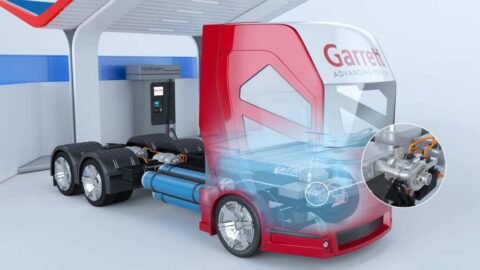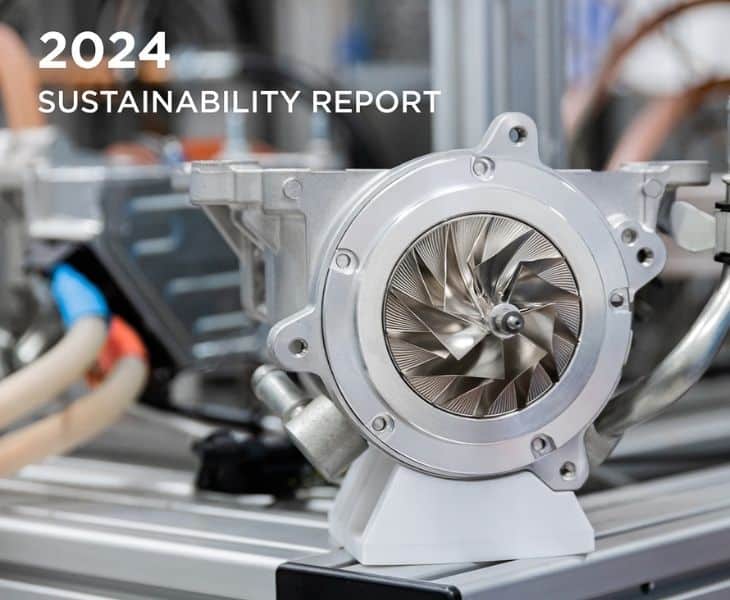Accessing the Knowledge Center effectively requires a simple, one-time registration.
Dynamic Simulation using ECMS Controller to Optimize the Fuel Economy of a Fuel Cell based HD Commercial Vehicle

Author: Garrett’s contribution to this paper through Vankayala Sujeet Nagaraj and De Araujo Philippe
Hydrogen-based fuel cell electric vehicles are a promising alternative to pure battery electric vehicles (BEV) in heavy-duty (HD) truck applications, due to lower weight penalty on the cargo mass, a higher range, and a lower refueling time. The overall drivetrain optimization (including battery and fuel cell sizing) requires an efficient and robust energy management concept, capable of exploiting the maximum system fuel saving potential, while considering critical component health metrics.
In recent years, the Equivalent Consumption Minimization Strategy (ECMS) has demonstrated its capability to meet those requirements when applied to passenger car hybrid powertrains. In a traditional implementation, the ECMS-based control policy is typically calculated a-priori, based on steady state operating conditions. The solutions are then implemented as look up tables in the final dynamic model.
In this paper, a novel model-based online ECMS controller is implemented on a dynamic forward-facing simulation model of a fuel cell powered heavy-duty truck. The forward-facing model integrates a 0-D, lumped humidifier and 1-D stack model with a fuel cell compressor offering realistic response dynamics. The ECMS controller makes use of a kinematic backward-facing surrogate model of the drivetrain, including a polarization curve-based lookup of the fuel cell stack. In addition, to accurately account for driveline dynamics, suitable rate limiters are implemented in the surrogate model. The proposed modelling approach eliminates the need of a-priori ECMS calculations, and thus offers a significant workflow improvement. The resulting control strategy is applied and evaluated on two different regulatory cycles.
Publisher: SAE International’s WCX Conference, April 18-20 2023, Detroit, MI
Paper number: 2023-01-0497









